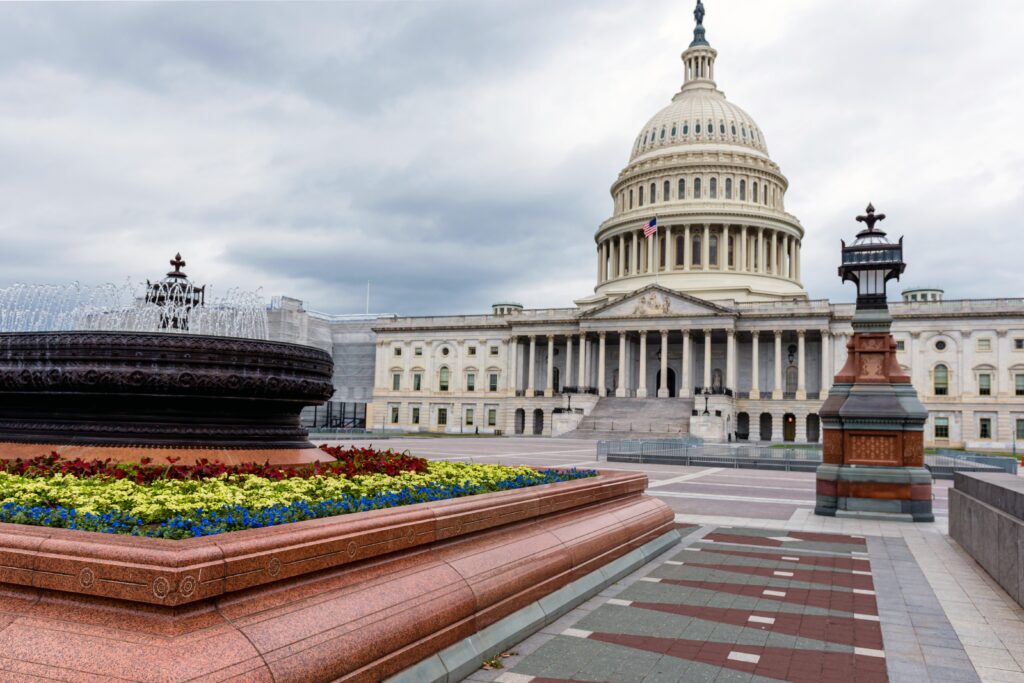
What Happens When the Shutdown Ends?
Here are my thoughts on what to expect when the federal shutdown finally ends. First, the lights don’t all flick back on at once. Agencies

The final sum is slightly greater than the FY 2018 total.
The federal government won or negotiated more than $2.6 billion in healthcare fraud adjustments and settlements during the course of the 2019 fiscal year, according to an annual report released Wednesday by the U.S. Department of Health and Human Services (HHS).
The “Health Care Fraud and Abuse Control Program Annual Report” is issued as a joint document, composed along with the U.S. Department of Justice (DOJ). The report outlines efforts undertaken annually as a result of The Health Insurance Portability and Accountability Act of 1996 (HIPAA), which established its national Health Care Fraud and Abuse Control Program (HCFAC) under the joint direction of the U.S. Attorney General and the HHS Secretary to “coordinate federal, state, and local law enforcement activities with respect to healthcare fraud and abuse” – language surely familiar to healthcare providers nationwide.
“In its twenty-third year of operation, the Program’s continued success confirms the soundness of a collaborative approach to identify and prosecute the most egregious instances of healthcare fraud, to prevent future fraud and abuse, and to protect program beneficiaries,” the report’s executive summary read.
Greater than the fraudulent sum identified, approximately $3.6 billion, was actually returned to the federal government or paid to individuals last year – and of that sum, the Medicare Trust Funds received transfers of approximately $2.5 billion, in addition to $148.6 million in federal Medicaid funds that were similarly transferred separately to the Treasury, officials noted.
The DOJ also opened 1,060 new criminal healthcare fraud investigations during the 2019 fiscal year, with federal prosecutors filing criminal charges in 485 cases involving 814 defendants. A total of 528 defendants were convicted of healthcare fraud-related crimes during that time. Also, the DOJ opened 1,112 new civil healthcare fraud investigations and had 1,343 civil healthcare fraud matters pending at the end of the fiscal year. FBI investigative efforts resulted in 558 “operational disruptions of criminal fraud organizations and the dismantlement of the criminal hierarchy of more than 151 healthcare fraud criminal schemes,” the report noted.
As for the HHS Office of Inspector General (HHS-OIG), its investigations resulted in 747 criminal actions against individuals or entities that engaged in crimes related to Medicare and Medicaid, along with 684 civil actions, which include false claims and unjust-enrichment lawsuits filed in federal district court, civil monetary penalty (CMP) settlements, and administrative recoveries related to provider self-disclosure matters. HHS-OIG also excluded 2,640 individuals and entities from participation in Medicare, Medicaid, and other federal health care programs during that time.
The $2.6 billion in fraud adjustments and settlements was a slight increase over the 2018 fiscal year’s total of $2.3 billion, while the DOJ caseload declined slightly, dropping from 1,139 in 2018 to 1,060 last year.


Here are my thoughts on what to expect when the federal shutdown finally ends. First, the lights don’t all flick back on at once. Agencies

Back in June, I was on the Monitor Mondays broadcast discussing the initial momentum within the Trump Administration for a single, national provider directory. Now,
Please log in to your account to comment on this article.

Accurately determining the principal diagnosis is critical for compliant billing, appropriate reimbursement, and valid quality reporting — yet it remains one of the most subjective and error-prone areas in inpatient coding. In this expert-led session, Cheryl Ericson, RN, MS, CCDS, CDIP, demystifies the complexities of principal diagnosis assignment, bridging the gap between coding rules and clinical reality. Learn how to strengthen your organization’s coding accuracy, reduce denials, and ensure your documentation supports true medical necessity.

Accurately determining the principal diagnosis is critical for compliant billing, appropriate reimbursement, and valid quality reporting — yet it remains one of the most subjective and error-prone areas in inpatient coding. In this expert-led session, Cheryl Ericson, RN, MS, CCDS, CDIP, demystifies the complexities of principal diagnosis assignment, bridging the gap between coding rules and clinical reality. Learn how to strengthen your organization’s coding accuracy, reduce denials, and ensure your documentation supports true medical necessity.

Denials continue to delay reimbursement, increase administrative burden, and threaten financial stability across healthcare organizations. This essential webcast tackles the root causes—rising payer scrutiny, fragmented workflows, inconsistent documentation, and underused analytics—and offers proven, data-driven strategies to prevent and overturn denials. Attendees will gain practical tools to strengthen documentation and coding accuracy, engage clinicians effectively, and leverage predictive analytics and AI to identify risks before they impact revenue. Through real-world case examples and actionable guidance, this session empowers coding, CDI, and revenue cycle professionals to shift from reactive appeals to proactive denial prevention and revenue protection.

Denials continue to delay reimbursement, increase administrative burden, and threaten financial stability across healthcare organizations. This essential webcast tackles the root causes—rising payer scrutiny, fragmented workflows, inconsistent documentation, and underused analytics—and offers proven, data-driven strategies to prevent and overturn denials. Attendees will gain practical tools to strengthen documentation and coding accuracy, engage clinicians effectively, and leverage predictive analytics and AI to identify risks before they impact revenue. Through real-world case examples and actionable guidance, this session empowers coding, CDI, and revenue cycle professionals to shift from reactive appeals to proactive denial prevention and revenue protection.

Get clear, practical answers to Medicare’s most confusing regulations. Join Dr. Ronald Hirsch as he breaks down real-world compliance challenges and shares guidance your team can apply right away.

Get clear, practical answers to Medicare’s most confusing regulations. Join Dr. Ronald Hirsch as he breaks down real-world compliance challenges and shares guidance your team can apply right away.

Federal auditors are zeroing in on Inpatient Rehabilitation Facility (IRF) and hospital rehab unit services, with OIG and CERT audits leading to millions in penalties—often due to documentation and administrative errors, not quality of care. Join compliance expert Michael Calahan, PA, MBA, to learn the five clinical “pillars” of IRF-PPS admissions, key documentation requirements, and real-life case lessons to help protect your revenue.

Federal auditors are zeroing in on Inpatient Rehabilitation Facility (IRF) and hospital rehab unit services, with OIG and CERT audits leading to millions in penalties—often due to documentation and administrative errors, not quality of care. Join compliance expert Michael Calahan, PA, MBA, to learn the five clinical “pillars” of IRF-PPS admissions, key documentation requirements, and real-life case lessons to help protect your revenue.
Happy National Doctor’s Day! Learn how to get a complimentary webcast on ‘Decoding Social Admissions’ as a token of our heartfelt appreciation! Click here to learn more →
CYBER WEEK IS HERE! Don’t miss your chance to get 20% off now until Dec. 1 with code CYBER25
CYBER WEEK IS HERE! Don’t miss your chance to get 20% off now until Dec. 2 with code CYBER24